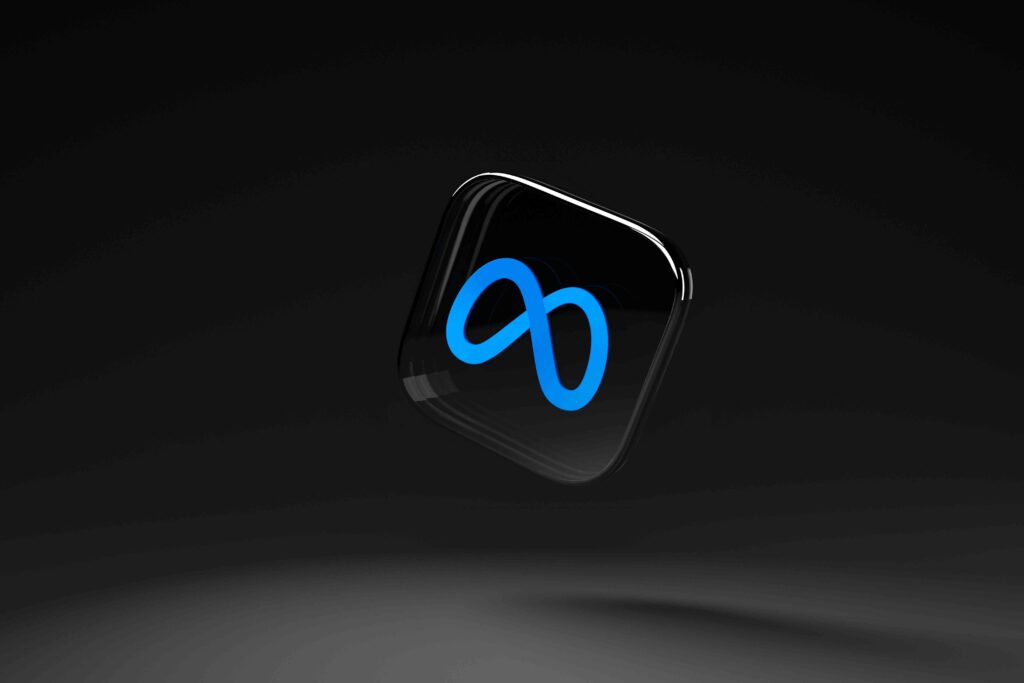In our rapidly evolving world, the impact of artificial intelligence (AI) becomes increasingly evident day by day, and Meta AI stands out as a major player in this field, bearing the name of Facebook’s parent company (Meta).
What is Meta AI?
Meta AI is a comprehensive initiative that aims to develop AI technologies and explore their diverse potential, stemming from its deep belief in the ability of these technologies to revolutionize various aspects of our lives.
This initiative encompasses three main pillars:
1. Fundamental Research:
Meta AI focuses on gaining a profound understanding of the fundamentals of AI, starting from machine learning and natural language processing to deep learning and computer vision. It strives to push the boundaries of knowledge in this field through its advanced research and publication in prestigious scientific journals.
2. Application Development:
Meta AI goes beyond theoretical research and seeks to translate its research findings into practical applications that enhance user experiences.
Meta AI’s applications include:
- Machine Translation: Provides seamless and accurate translation across Meta’s platforms, such as Facebook, WhatsApp, and Instagram.
- Content Creation: Assists in writing creative text formats, such as poems and code, summarizing information, and generating engaging ad content.
- User Recommendations: Offers personalized suggestions for products and services that might interest users, based on their behavior and preferences.
3. Open Community:
Meta AI believes in the importance of collaboration to develop AI responsibly,
Therefore, it shares its research and tools with the scientific community through:
- Publishing Research Papers: Enables other researchers to access and benefit from Meta AI’s research findings.
- Open-Sourcing Tools: Facilitates developers in building new AI applications.
- Hosting Conferences and Workshops: Encourages the exchange of knowledge and expertise among AI experts.

What are Meta AI’s Achievements?
Meta AI has made numerous significant achievements that demonstrate its leadership in the field of AI, including:
- LaMDA Model: A large language model capable of generating text, translating languages, and writing various creative content formats with high accuracy.
- Meta AI Assistant: An AI-powered assistant embedded in Meta’s apps, such as WhatsApp, to simplify daily tasks like scheduling appointments and sending messages.
- Reality Labs Technology: Develops virtual and augmented reality technologies to create immersive experiences that transform our interaction with the digital world.
What are Meta AI’s Future Plans?
Meta AI aspires to play a pioneering role in shaping the future of AI by:
- Integrating AI across all its products and services: To provide an enhanced and efficient user experience.
- Developing safer and more responsible AI technologies: By focusing on privacy and ethical security to ensure that these technologies are used beneficially for all.
- Collaborating with stakeholders across sectors: Such as governments, NGOs, and businesses, to ensure ethical and equitable use of AI.
What are the Challenges Facing Meta AI?
Despite its remarkable achievements, Meta AI faces several challenges that it must address to maintain its position as a leader in the responsible development and application of AI. These challenges include:
- Privacy Concerns: Addressing user concerns about data privacy and ensuring that AI systems are developed and used in a way that protects user information.
- Ethical Considerations: Establishing clear ethical guidelines for the development and use of AI to prevent potential biases and ensure that AI is used for the benefit of society.
- Talent Acquisition and Retention: Attracting and retaining top talent in the field of AI to continue driving innovation and progress.

Prominent Meta AI Models:
PyTorch: An Open-Source Machine Learning Library
PyTorch is a popular open-source machine learning library that is easy to use and efficient. It supports a wide range of machine learning models, making it a powerful tool for data scientists and engineers.
PyTorch is used in various applications, including computer vision, natural language processing, and artificial intelligence development.
FAIRSEQ: An Open-Source Toolkit for Natural Language Processing
FAIRSEQ is an open-source natural language processing toolkit used to build machine learning models for understanding human language. FAIRSEQ supports a variety of tasks, such as machine translation, text summarization, and question answering.
It is used by researchers and companies to develop new natural language processing techniques, which helps improve our interaction with computers and understanding of the world around us.
CausalRel: A Machine Learning Model for Understanding Causal Relationships
CausalRel is a machine learning model used to understand causal relationships between events. It helps determine why a particular event occurred, making it a valuable tool in fields like healthcare, finance, and social sciences.
CausalRel is still under development but has shown promising results in various tasks, indicating its potential to enhance our ability to analyze data and make decisions.
Rosetta: A Tool for Translating Text Across Hundreds of Languages
Rosetta is a tool that utilizes machine learning techniques to translate text between hundreds of languages. It enables accurate and fast text translation, making it a useful tool for individuals and organizations that need to communicate in different languages.
Rosetta is used to translate online content, such as websites and documents, which helps promote global communication and information exchange.
Meta AI models are powerful tools that contribute to the advancement of various fields by improving our ability to analyze data, understand human language, communicate across languages, and make decisions.
These models demonstrate Meta AI’s commitment to developing AI technologies that benefit society and contribute to building a better future.
AI Pioneers at Meta AI
Meta AI, the research arm of Meta, is home to some of the brightest minds in the field of artificial intelligence. Led by these pioneers, Meta AI is making groundbreaking progress in developing new AI technologies that are revolutionizing various fields.
Yoshua Bengio: A Visionary and Turing Award Winner
Yoshua Bengio, the Director of AI Research at Meta, tops the list of AI pioneers at the company. Bengio won the Turing Award in 2018, the highest honor in computer science, for his groundbreaking contributions to machine learning and deep neural networks.
Bengio is a leading figure in AI, having published numerous seminal papers and delivered talks at prestigious international conferences. Under his leadership, AI research at Meta is directed towards developing new AI technologies that benefit society and contribute to building a better future.
Yann LeCun: A Pioneer in Machine Learning and Developer of Innovative Technologies
Yann LeCun holds the position of Senior Vice President of AI at Meta. LeCun is a pioneer in machine learning, with extensive experience in developing and applying AI technologies. LeCun has contributed to several significant projects at Meta, including PyTorch, a popular open-source machine learning library.
LeCun frequently speaks about AI in the media, striving to raise awareness about the potential and benefits of this technology.
Michelle Jordan: A Natural Language Processing Expert and Advocate for AI Ethics
Michelle Jordan serves as Vice President of AI Research at Meta. Jordan is an expert in natural language processing, the area of AI that deals with understanding and generating human language.
Jordan has contributed to developing several advanced natural language processing techniques, which are used in applications such as machine translation and speech recognition.
Jordan is concerned about AI ethics and works to ensure that AI technologies are used responsibly.
Demis Hassabis: A Leader in General AI and a Visionary
Demis Hassabis is one of the most influential figures in AI. He is the founder of DeepMind, an AI research company that was acquired by Meta in 2014.
Hassabis focuses on developing general AI, a type of AI that possesses the same capabilities as human intelligence. Hassabis led the development of AlphaGo, an AI program that defeated the world champion in the game of Go, marking a breakthrough in AI.
Hassabis believes in the potential of AI to improve human lives and has an ambitious vision for the future of AI.
Meta AI’s pioneers embody a deep passion for AI and a strong belief in its potential to change the world. With their expertise and leadership, Meta AI is helping to drive the progress of AI research and contribute to building an intelligent future that benefits everyone.
Meta AI is a driving force in the field of AI with the potential to revolutionize various aspects of our lives. However, it is crucial to ensure that these technologies are developed and used responsibly and ethically to maximize their positive impact on society.
Meta AI’s commitment to research, collaboration, and ethical considerations positions it well to lead the way in shaping a future where AI benefits all.
To learn more about Meta AI, here are some reliable resources:
Official websites:
No, the AI pioneers at Meta AI are not related to each other in the traditional sense of family. They come from different backgrounds and countries, and they have diverse experiences and expertise.
How do they work together as a team?
Despite their differences, the AI pioneers at Meta AI share a common passion for artificial intelligence and a strong belief in its potential to benefit society.
They work together collaboratively, sharing ideas, expertise, and resources to advance the field of AI.
What is the “Meta AI family” like?
The Meta AI family is a diverse and dynamic group of individuals who are united by their shared interests and goals. They are passionate about their work, and they are constantly pushing the boundaries of what is possible in AI.
What are the benefits of working in the Meta AI family?
There are many benefits to working in the Meta AI family. These include:
– The opportunity to work with some of the brightest minds in AI.
– The chance to be at the forefront of AI research and development.
– The ability to make a real impact on the world.
– A supportive and collaborative work environment.
How can I join the Meta AI family?
If you are interested in joining the Meta AI family, you can visit the Meta AI careers page to learn more about available opportunities.
You can also follow Meta AI on social media to stay up-to-date on the latest news and developments.



